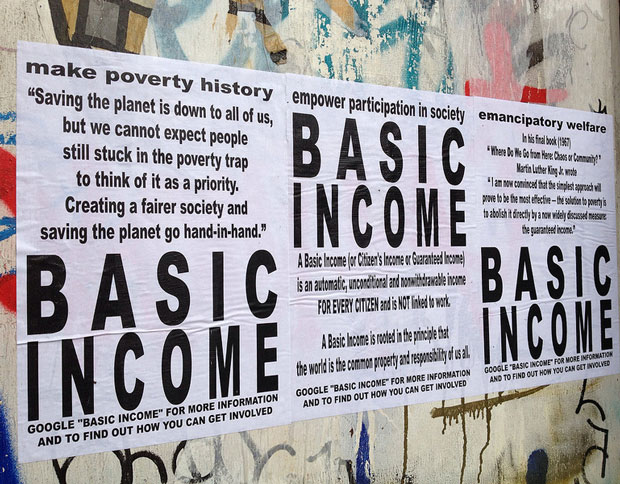A Radical Experiment to Completely End Poverty in America

By:
A basic income pilot program is coming to Oakland, California.

Y Combinator, a Silicon Valley company that funds startups, plans to launch a short-term pilot program in Oakland that would give select residents a monthly allowance — no strings attached — in order to study how Americans could benefit from a basic income system. If the program is successful, the company hopes to expand the study.
"In our pilot, the income will be unconditional; we’re going to give it to participants for the duration of the study, no matter what," Y Combinator wrote. "People will be able to volunteer, work, not work, move to another country — anything. We hope basic income promotes freedom, and we want to see how people experience that freedom."
The idea of a basic income system is gaining popularity around the world.
While critics argue that giving people a guaranteed income will make them less likely to contribute to the workforce and come at a steep cost to taxpayers, others feel that a basic income system is a natural response to structural economic changes that are leaving workers unemployed or underemployed. It could serve as a buffer against rising income inequality, Vox reports.
There are plans to launch basic income pilot programs in parts of Canada, Finland, and the Netherlands this year. Voters in Switzerland are also set to vote on a basic income referendum in June, which would give residents $3,200 per month if approved.
For Y Combinator, concerns about job automation — the process by which technology gradually replaces workers — inspired the company's basic income study:
"One reason we think it may work is that technological improvements should generate an abundance of resources. Although basic income seems fiscally challenging today, in a world where technology replaces existing jobs and basic income becomes necessary, technological improvements should generate an abundance of resources and the cost of living should fall dramatically."
The U.S. and Canada experimented with basic income in the 1960s and 1970s, but long-term studies of the system "were either flawed or abandoned," FiveThirtyEight reports.
 Criticl - criticl.me
Criticl - criticl.me
The most compelling study of the basic income system, according to economists, took place in the Canadian town Dauphin in the 1970s. Local and federal government provided a guaranteed annual income to Dauphin residents for five years in an effort to assess the potential impact on the town's workforce. Researchers found that while a basic income did appear to result in less work from new mothers and teens, it's overall effect on the workforce was negligible.
